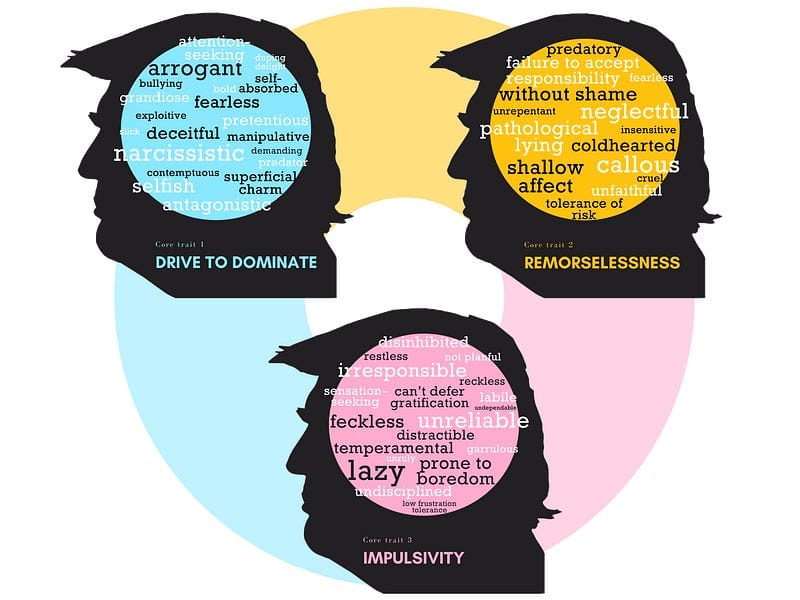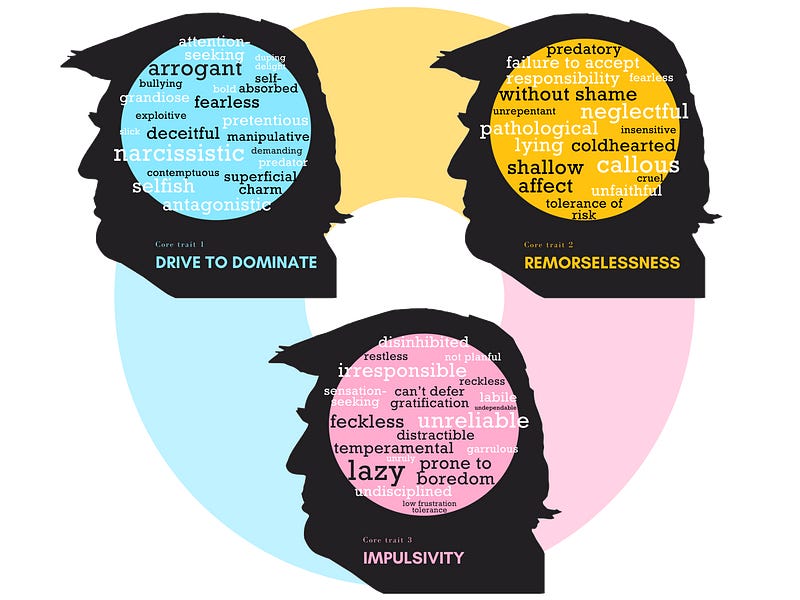
2024 could have been a victory lap for Joe Biden.
If Biden had announced months ago he would not be seeking a second term, he could have spent this campaign season criss-crossing the country on a "Morning in America" Tour celebrating jobs growth, infrastructure investments, and historic action on climate.
Every speech could have highlighted the distance between Charlottesville and today. Between the horror of 2020 and today. Between January 6th and today. Between Trump and today.
Every speech could have promoted the strengths of his anointed successor—either VP Kamala Harris or the victor of a hard-fought primary campaign against her.
Every speech could have showcased a Democratic vision for the future that contrasted clearly with the unpopular, extremist vision of the criminal Trump and his fascistic minions in blue suits and red ties.
Every speech could have described the decades-long danger to America that would unfold if Trump 47 were allowed to replace two or more of the aging, corrupt, black-robed extremists on the Supreme Court with younger, more extreme models.
Every speech could have focused on the toll the Presidency takes on a man heading into his 80s. "Dark Brandon" could have poked fun at the increasing debilitation Trump is displaying on the campaign trail—and the growing influence of the evildoers around him (Bannon, Miller, Alito, The Heritage Foundation, etc.)
But Biden decided to run for a second term. The party united behind him. He's the Democrats' presumptive nominee. And Trump, the GOP and Fox News have, as expected, attacked him for being too old and feeble to do the job.
Last Thursday's debate was supposed to be Biden's opportunity to put those concerns to bed once and for all.
It didn't quite work out that way
It's easy to say that the first presidential debate months before Election Day has never been a deciding factor in past elections.
But we could also say that riding around in a tank was never a deciding factor in an election until Mike Dukakis tried it.

If Biden stays in the race, the last few months of the campaign will be a relentless stream of attacks on his age and mental competence.
Those attacks will be demoralizing. Ultimately, they may not matter to hard-core Democratic voters. But at the margins, they could make all the difference in November.
John Kerry was Swift-Boated. Bush was re-elected with just 286 Electoral College votes.
And Trump has already gained the White House even after losing the popular vote.
In 2016, Hillary faced relentless attacks on her health that included a steady stream of fake news and doctored photos on multiple National Enquirer covers. Those false attacks were seemingly validated when she almost fainted (following a widely reported "coughing fit" days earlier) at a 9/11 event two months before the election. Her campaign's secrecy in those moments didn't help either.
Team Biden should anticipate non-stop attacks from Trump, the GOP, Fox News and the right wing media ecosystem between now and November.
I also fear that these attacks—bolstered by clips from the debate—will obscure both Biden's formidable record of achievement and nullify legitimate concerns about Trump's own age and cognitive decline.
As the election approaches, more and more billionaires are jumping onto the steamroller of fascism. For the GOP, Elon Musk, Fox News, and the rest, the goal is to create an aura of inevitability and invincibility around Trump.
After his disastrous debate, can Biden overcome this? Is there a path forward for him? Can he still convince the country that his aging brain is a safer bet than Trump's demented, psychopathic one?
For answers, I turned (once again) to Dr. Vince Greenwood, the clinical psychologist whose 2020 diagnosis of Trump convinced many Americans, including Trump's The Art of the Deal ghostwriter Tony Schwartz, that the former President is, indeed, a psychopath.
Post-debate Q&A with clinical psychologist Vince Greenwood, Ph.D.
Q. Suppose the arguments for Biden and against Trump are that Biden is demonstrating normal aging and Trump is displaying signs of mild cognitive deterioration. How can that diagnosis be squared with what we saw at the debate?
It's clear that the televised debate format plays more to Trump's strengths than to Biden's. This particular debate—with muted microphones that restrained Trump's worst tendencies, and a lack of fact-checking that allowed him to lie with impunity—amplified that effect.
And because our brains are wired to jump to conclusive judgements based on rapid-fire, intuitive appraisals of surface characteristics, it's easy to imagine the average viewer of the first debate might conclude that Biden is the one with cognitive impairment. (It is possible to moderate that tendency—the “Moneyball” revolution in Major League Baseball would be a good example—but it is hard work and doesn’t happen naturally.)
It's also true that, on debate night, Biden did display some tangential thinking and disordered syntax, which are signs of possible Neurocognitive Disorder. But that evening is just one data point, no matter how dramatic. You need many more data points, but we don’t yet have this for Biden.

The diagnosis of Neurocognitive Disorder (which is cognitive decline of a particular quality beyond the features of normal aging and which we think of as early dementia) is a serious and comprehensive undertaking. The diagnostic process rests on two fundamental principles: adhering to the strict and clear guidelines in The Diagnostic and Statistical Manual (DSM-5) to reach such a possible diagnosis, and having sufficient data.
The most painful and compelling moments with Biden at the debate—weak, raspy, and trembling voice, hesitation in speech, coughing, unconfident gait, occasional word-finding difficulty—are signs of aging, not early dementia. No matter how strong an impression you might have flowing from Biden’s struggles at the debate, it would not be clinically and scientifically valid to change our more data-rich conclusions about their respective cognitive capacities based on one performance. A more rigorous analysis concludes that while Biden shows more signs of aging than Trump, the ex-President shows significantly more signs of cognitive decline.
By the way, Trump also displayed tangential thinking and disordered syntax, but his strong and confident tone of voice helped obscure these issues.
Q. Even if we accept that Biden's stumbling and bewildering debate performance was caused by a brain that is simply old, how can we imagine that same brain being able to serve four more years as president?
That is a sobering question. Based on what they saw and heard at the debate, many people will find it difficult to imagine Biden handling four more years as president. However, they would be on very solid ground if they predicted there is a strong likelihood Biden would handle the next four years in a highly competent manner. There are good reasons behind this assertion:
(1) By all accounts, he has been handling the executive—as opposed to the performative—part of his duties—the planning, the overseeing of his team of experts, the digestion of complex policy papers, and the collaboration with world leaders—quite well. The accomplishments of the first term underscore a high-functioning Oval Office. Since past behavior is the best predictor of future behavior, even at his age, it is not unreasonable to be confident about his functioning over the next several years.
It is possible his executive functioning has gone downhill significantly in the past six months or so, and that decline has been kept hidden. But I would like to see evidence of that, perhaps in the form of insider accounts. So far, we have not seen such accounts.
(2) It may be natural to generalize a stumbling and bewildering debate performance to future performance, but it is an example of faulty reasoning. If you just focused on Steph Curry’s worst game last season (2 for 13 on field goal attempts and 0 for 9 on 3-point attempts against Celtics on 3/3/24), you’d wonder why he wasn’t drummed out of the league.
Is this a particularly poor performance in an arena that doesn’t play to his natural strengths (more likely) or a new baseline that augurs poorly for him as a candidate or a second term (less likely, but possible)?
Q. If Biden is incapable of debating Trump, a known liar whose debate style and ability to bullshit with confidence are well established—and who is thought to be suffering from the first stages of dementia—how can it be argued that he is still capable of dealing with the world's most aggressive strongmen and dictators and all the challenges that may come up for four more years?
I would suggest that you think through these scenarios carefully and ask what is really required of the president. Dealing with strongmen and dictators has little to do with standing eight feet from them and engaging in a debate. It has more to do with the executive skills of managing your team of experts, synthesizing many types of information to inform how to deal with such leaders, relying on your experience on the world stage, and so on. Thinking on your feet and generating an articulate response is part of the job, but only a tiny part.
But your question underscores how consequential his debate performance was in leaving an impression that he is not up to the job.
It is wrenching because, of course, Trump is the one who is especially vulnerable to the influence of strongmen and dictators. After all, it aligns with his insatiable drive to dominate and bullying, deceitful arrogance.
Q. Even if most Democrats can be persuaded to vote for Biden on the strength of his experience and accomplishments and the quality of the team around him, how can that be expected to translate into the crucial votes from independents and others who might prefer to stay at home than vote for either candidate?
The support of these voters is probably crucial to the election's outcome. It certainly feels like securing those votes has been made more difficult.
If I could contribute to motivating these voters it would lie in the realm of spelling out the dangers of a Trump presidency. He is a diagnosed clinical psychopath, and we would be at the mercy of his extreme impulsivity, remorselessness, and deceitful arrogance.
Q. If the argument against Trump and the conservative Project 2025 agenda is that the future of Americans young and old, and the future of America at large is in the balance, how can it be justified that the Democratic Party does not put forward a young, dynamic, energetic, and eloquent leader, who can make that case more strongly to the American people?
Given the level of danger associated with a Trump victory, we need to put out the person with the best chance of defeating him. As they say, “A week in politics is a lifetime,” and I don’t rule out the possibility of Biden prevailing. But yes, the Democratic Party needs to make a sober and good-faith appraisal of who can best ward off the disaster of a Trump presidency.
Q. If Biden stays in the race, how likely is it that his presence helps suppress discussion of Trump’s own cognitive decline?
Ugh! It may make it more difficult to get the scientifically based concerns about Trump’s decline into the public arena, but hopefully, just in the short run. There are substantive, evidence-based reasons to indicate Trump has crossed a diagnostic threshold and displays signs of neurodegenerative disease. We will continue to lay out these reasons. They deserve attention. But they will now have to compete with the clips of Biden from the debate.
Q. Assuming Trump and the GOP intensify their attacks on Biden as “senile” and "unfit," would it become easier to make the case against Trump based on psychopathy vs cognitive decline?
Yes. But it’s not just that it is easier, but that it is more important. I had the specialized training to administer the Hare Psychopathy Checklist. This demanding instrument requires analyzing a voluminous life history data for lifelong destructive personality traits and associated behavior patterns. You have to check a lot of boxes to warrant the diagnosis of a clinical psychopath (only one in 140 meets the diagnostic criteria). Trump does meet that criteria. Indeed, he is in the moderate to severe range of psychopathy. Suppose someone qualifies for the diagnosis of clinical psychopath. In that case, there is a lot you can say about them and you can say it with authority because there have been thousands of studies generated by the checklist.

And the key take-home message from those studies is that Trump, as a diagnosed psychopath, is more dangerous than even his harshest critics claim. That’s because the psychopath is ruled by three hard-wired traits that put all those in his orbit in danger:
(1) The psychopath is remorseless. He has a brain that does not enable him to experience feelings of shame or guilt. It is hard for us to grasp what it is like to have no conscience at all, to feel utterly undaunted by the fear of punishment, and to have no limiting concern for the damage inflicted on others.
(2) It is also hard to fully understand one who is loveless and can only operate in a predatory manner. It is hard to fathom the preternatural and exclusive ‘win-at-all-costs’ focus of the psychopath. It is hard to appreciate that at every choice point, in their work and relationships with others, power and dominance will prevail over the welfare of others. Trump’s recent torpedoing of the bipartisan bill to deal with the border crisis is but one example
(3) And it is hard to fully appreciate the chaos, recklessness, and dereliction that flow from the psychopath’s impulsivity trait. The psychopath is helpless to curb their pervasive ‘what’s in it for me?’ impulse, powerless to give any issue a second thought, much less careful deliberation.
Our norms of civility, trust, and respect for the truth have been battered to the point that our liberal democracy is on the ropes. Donald Trump bears a significant responsibility for our (so far) cold civil war. But it is also fair to say he is a puppet on the strings of his clinical psychopathy, i.e., malignant narcissist personality disorder. Over the next few months, we need to drive home that message. We are in peril.
Q. If the election remains a choice between Biden and Trump and the deciding question becomes who is best to handle a 3 AM emergency phone call, how can it be argued that Biden is still the candidate better equipped to handle that possible scenario for the next four years?
Realistically, I assume Biden would convene a meeting immediately in the Situation Room of his team of experts. They would start pouring over the details of the emergency and formulating their best response. Biden would bring his considerable experience and judgment to bear on the situation and oversee the decision-making process.
At the same time, we should imagine how Trump—governed by the psychopathic traits of impulsivity, a drive to dominate, and remorselessness—might respond to a national or global emergency.
Wait, we don't have to imagine. We can revisit his disastrous response to the Covid-19 crisis, which was a Master Class in the expression of psychopathic traits. He could not bring any focus, planning, or discipline to the crisis. He blew off task force meetings and insider accounts report he never even had a plan of a plan (the impulsivity trait). He could not collaborate or defer with public health professionals and would subvert policy to divisive culture wars waged with deceit (the drive to dominate trait). He was unmoved by the scope of the threat and the suffering that flowed from it. His "I don't take responsibility at all," stance reveals the absence of any guilt or shame for the damage (the conservative estimate is 400,000 needless deaths) brought on by his dereliction (the remorselessness trait).
The danger that emanates from the psychopath's traits is typically not apprehended until the damage has been done. We need to do everything we can to prevent the looming peril.
November is coming! November is coming!
We have a duty to inform.
We have a duty to warn.
Please scroll down for links to my a past interviews with Vince Greenwood, Ph.D. Follow him at https://x.com/dutytoinform. Learn more at: https://dutytoinform.org/.
Thanks for reading! While paid subscriptions (billed to TLD Media LLC) and one-time tips are always welcome, all content to this ad-free newsletter is free, so subscribe for $0 and you won’t miss anything. And feel free to share this content knowing there’s never a paywall!
Past Q&As with Vince Greenwood, Ph.D.
2020 interviews:


2022 interview:

2023 interview:

See also:
Subscribe to Unprecedented
Subscribe to the newsletter and unlock access to member-only content.